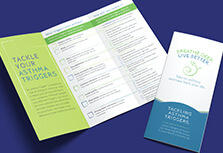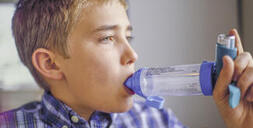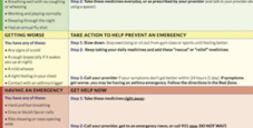Breathe deeply and live better by understanding what triggers your asthma
Vermont is among the highest in the nation in asthma prevalence rates, with 68,000 adults and 8,800 children with current asthma. More than half of those children have uncontrolled asthma, putting them at greater risk of missed school and asthma-related emergencies.
Asthma is serious, but you can reduce its effect by identifying and reducing the triggers that lead to asthma attacks. A trigger is anything that irritates your airways. It can be unique to each person and can include tobacco smoke and e-cigarette emissions, outdoor and indoor air pollution like diesel exhaust, fireplace smoke, dust mites, and pet dander.
Secondhand Smoke
There is no safe exposure to secondhand smoke or e-cigarette emissions. Smoke of all types, especially tobacco smoke, is a common trigger for people with asthma, especially children and babies. Breathing just a small amount of secondhand smoke that contains thousands of chemicals can cause a severe asthma attack. Emissions from vaping contains ultrafine particles, metals, and toxins that are known to trigger an asthma attack.






